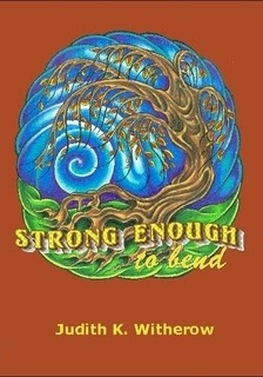
This was the question that Judith Witherow asked when she was reviewing the personal essays that make up her memoir Strong Enough to Bend. And her answer was "love." She understood that no one could love her partner Sue or her sons with the kind of passion she carries in her body. After reading her book, I would conclude that she also carries that unique passion to her readers. She wants us to heal with her. She wants us to understand. To that end, she shares stories of great suffering and great fortitude.
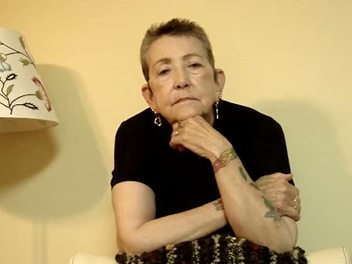 Judith Witherow
Judith Witherow 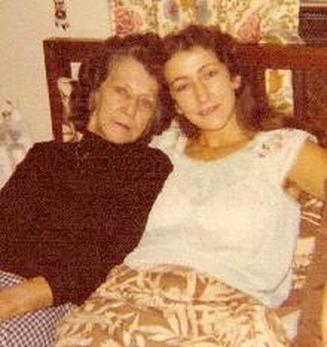 Judith With Her Mother in 1978
Judith With Her Mother in 1978 "The last night of my marriage still seems like some other woman lived through it. Him sitting on the bed slapping a buck knife against his leg. Me pinned down by the blankets and the fear in my gut. 'I don’t want to kill you but I have to.'”
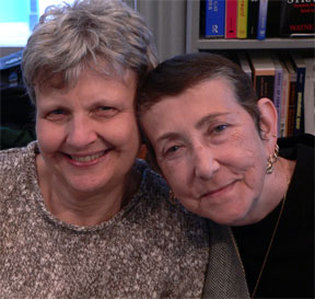 Judith with her life partner Sue Lenaerts
Judith with her life partner Sue Lenaerts 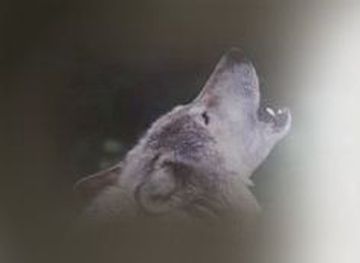 Judith's Totem
Judith's Totem The third section of the book is about the author’s health… and again, she makes sure the reader understands the ways in which misogyny, racism, and poverty inform the narrative. There are misdiagnoses, medical malpractice, and the mysterious experimental treatments she underwent as a child… because they were free. Witherow, warrior woman, does her own research and her own networking about her illnesses. She notes, in an essay about a group therapy session, “The knowledge I crave can only come from the other ‘chosen ones.’” And she also notes, “Whenever ‘it strikes women more often’ is heard, the battle for funding automatically begins.” This is a tough section to read, but as Witherow notes the real shame she feels is toward a country that spends more on war than on research for saving lives.
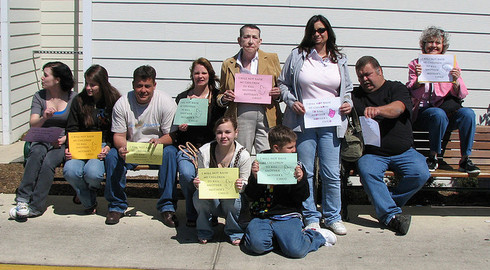 Judith and Sue's Family Plus Friend with a Mother's Day Pledge: ""I will not raise my children to kill another mother's child."
Judith and Sue's Family Plus Friend with a Mother's Day Pledge: ""I will not raise my children to kill another mother's child." There is so much between the covers of this book, and I understand it’s still only a tiny percentage of the intersecting oppressions and overlapping experiences in Witherow’s life. One of the many take-aways from this powerful memoir is a stanza from one of her poems titled “Losin’ Our Origin:”
"'If you would just think
more positively your
life would be better.
Smile more. Expect less.
Life is crap because
your outlook created it.'
Reservations rack and reel with this gem."
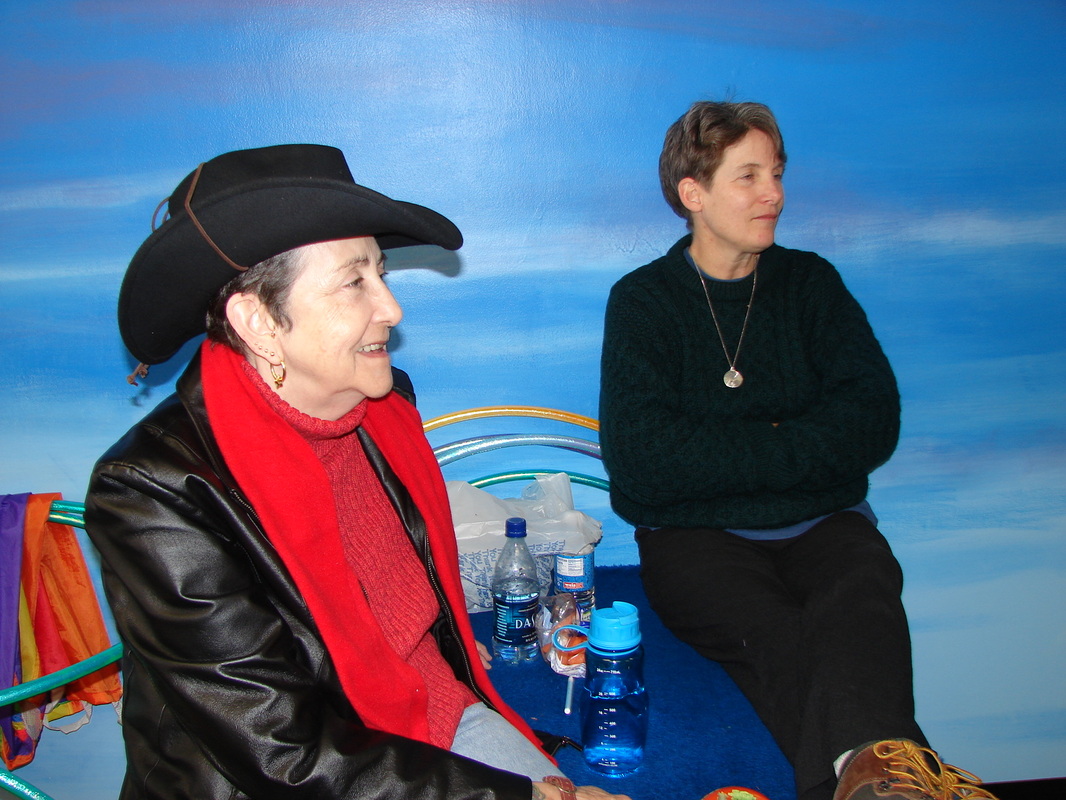

 RSS Feed
RSS Feed
